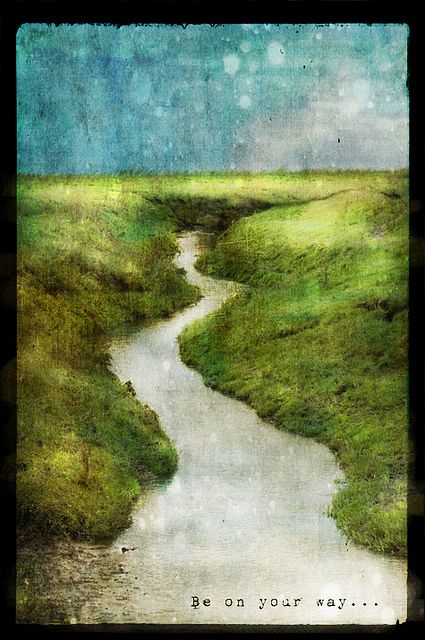|
Photo: Jamie Heiden
To journey without being changed is to be a nomad. To change without journeying is to be a chameleon. To journey and be transformed by the journey is to be a pilgrim. -Mark Nepo I am utterly fascinated by people who, tired of a grid-locked life, decide to leave their routine and predictable lives in favor of adventure. I am especially interested in the modern day sojourners who are taking on an ancient pilgrimage that Christians began in the Middle Ages. The Camino de Santiago is a 500 mile trek that begins in Southern France and ends in Northern Spain. The passage marks the “Way of St. James” or the route that the remains of the great Saint were carried from Jerusalem to his burial site in Santiago de Compostela, Spain. The people that walk the Camino are referred to as “pilgrims” and each town offers special lodging, food rates and specific care such as washing and bandaging their sore and blistered feet. The journey is undertaken by people from all walks of life and varying ages—there are no particular requirements for the pilgrimage--just that one cultivate the heart of the pilgrim by opening oneself to be transformed by the journey. People from various religious and spiritual traditions have been making pilgrimages for centuries. The most well known pilgrimage sites are places where saints lived and died, miracles were performed and other numinous events took place. These sacred sites honor the meeting places of the Divine and human; the merging of the timeless with the temporal on this planet. Pilgrimages honor our personal quests for truth, awakening, transformation and healing. They temporarily call us out of and away from our familiar lives in order to experience life on different terms—terms not entirely of our own making which create the exact opportunities necessary for our personal transformation. The real pilgrimage points us in the direction of an inner journey to self-discovery and true soul fulfillment. We are each invited to make our own particular pilgrimages throughout the course of our lives. It takes tremendous courage to accept the calls of our lives because the nature of a calling is that we are invited to step into an entirely new experience. We are asked to go where we have never gone before. The way may not be clear and well-travelled. As the Spanish poet Antonio Machado declares: "Traveler, there is no path. Paths are made by walking." Recognizing a Calling in Our Lives The definitive qualities of a calling can be contrasted with the familiar habits and ways of living that can be understood as our conditioning. Here is a brief look at some of the differences between the two: CALLING: CONDITIONING: Intrinsic (motivated from within) Extrinsic (motivated from outside) Creative Prescribed Unknown Known Adventure Pre-planned tour Individualized Generalized Felt/Sensed Planned/strategized Mystery Rationality Wild Tamed Intuitive Logical Soul-Centric Egocentric Circular Linear Pilgrimage Promotion Process Product While a calling is connected to an inner longing that puts us on the path to fulfilling our purpose, the initial catalyst to making a significant change in our lives is often initiated by outer life circumstances or events such as new discoveries or experiences, transitions, or specific crises or challenges such as illness, death, or divorce. For others there is a restlessness or subtle sense of dissatisfaction with the status quo and a readiness for “something more.” I have been able to identify five distinct characteristics of a calling:
Your Pilgrim Heart Not all of us are able to undertake the kind of pilgrimages that would have us take leave of our everyday lives for an extended period of time, nor is it necessary. However, we can always choose to view our current lives as a sacred journey. What would it mean for you to step into this metaphor of pilgrimage within the context of your life? How would perceiving yourself as a pilgrim on a sacred adventure alter your the ways you experience the everyday adventure? Cultivating a pilgrim’s heart requires a willingness to release your fixed expectations or rigid attachments while doing your best to remain open and curious; allowing the journey itself to inform your walking. While the framework and pathways of a traditional pilgrimage have already been established, the nature of what you will experience and receive personally will differ greatly from another and cannot be predicted. Trust that you will be given exactly what you need as you go. Call on the help of guides and allies in both the visible and invisible worlds. Allow one step to lead to the next—trust the process. Expect the alchemy of the adventure to work miracles in your life. Magic happens when we are willing to follow our heart’s call more fully into this wild and wondrous world while holding the tender remembrance that we are only passing through this place. Personal Reflection To deepen your own understanding of calling in your life, consider journaling your responses to these questions: When have you received a call in the past? Describe the time and what was happening in your life. What current discoveries, circumstances or events in your own life might be catalyzing a call? Are you able to identify the deeper longing of your heart by saying “yes” to this call? Which of the five characteristics of a call resonate most with you? Why? A few qualities of the “pilgrim heart” that I name are “openness, connection to invisible and visible help, curiosity, trust, and willingness.” What specific qualities do you feel are important for you to cultivate for your personal journey?
0 Comments
Leave a Reply. |
Jenny ClarkeArchives
June 2021
Categories |
What My Clients Are Saying:
|
Connect with Me |

 RSS Feed
RSS Feed